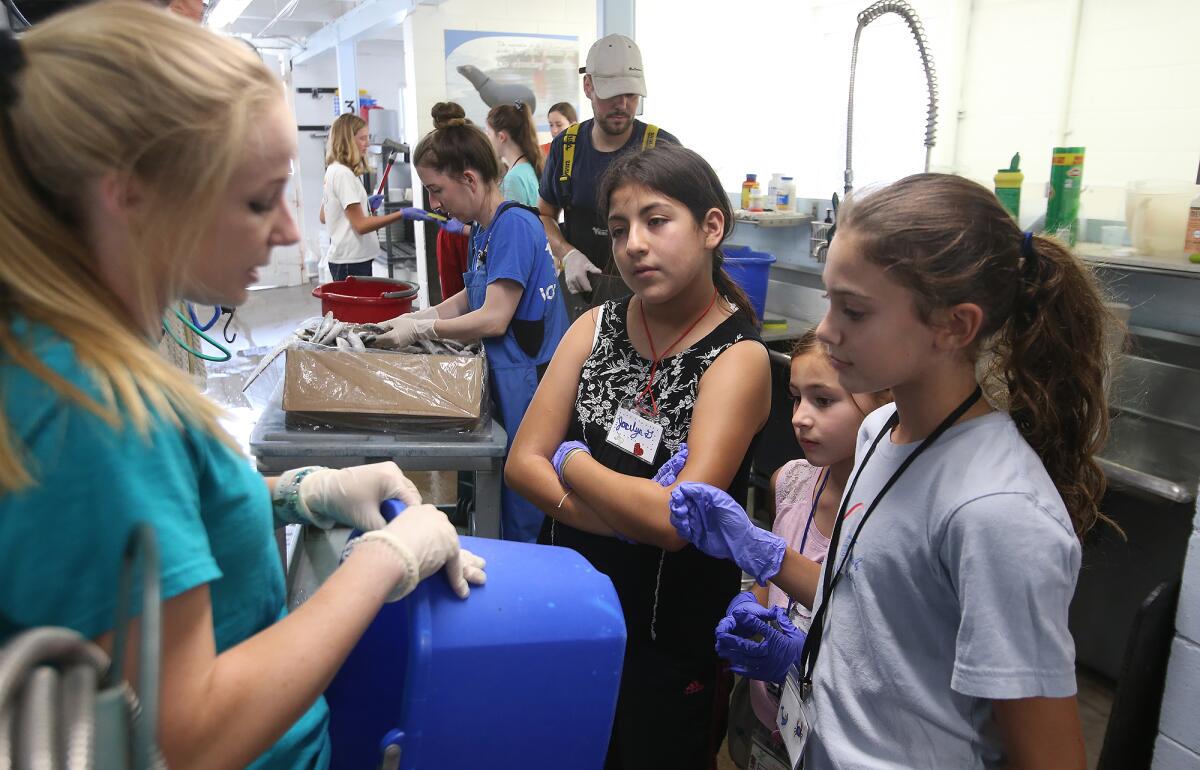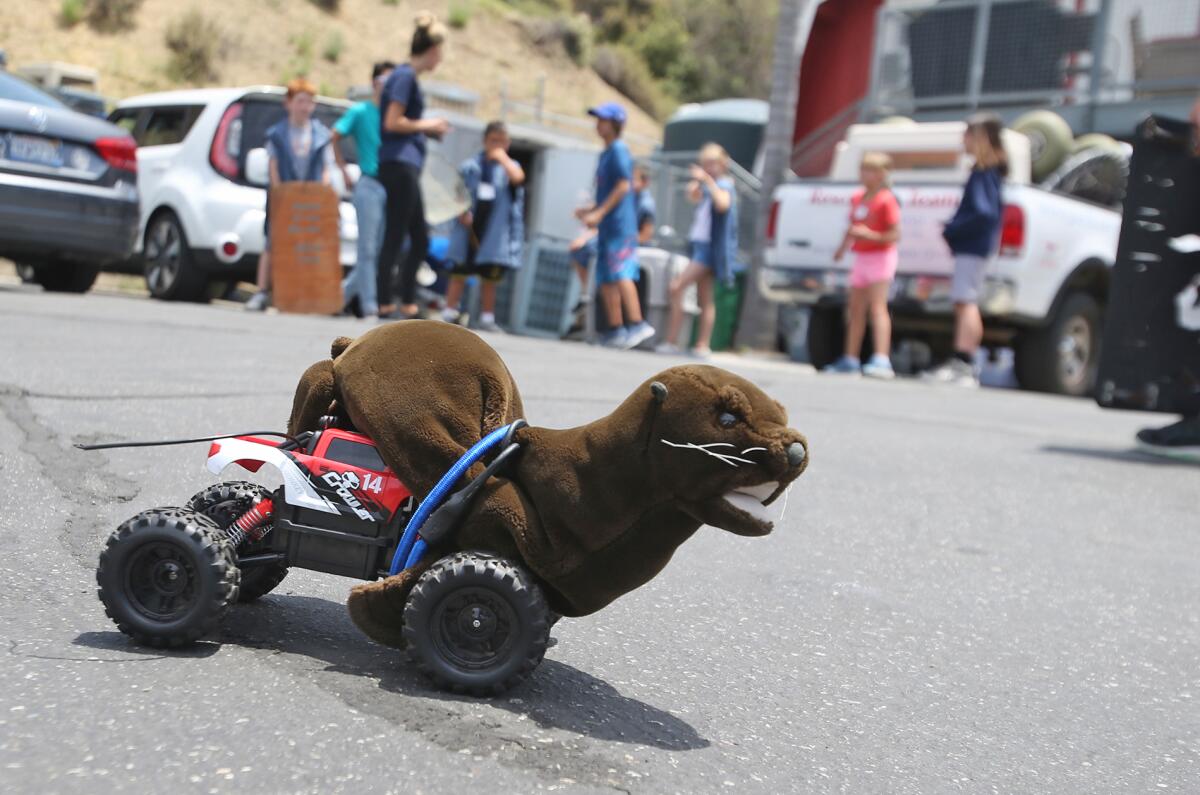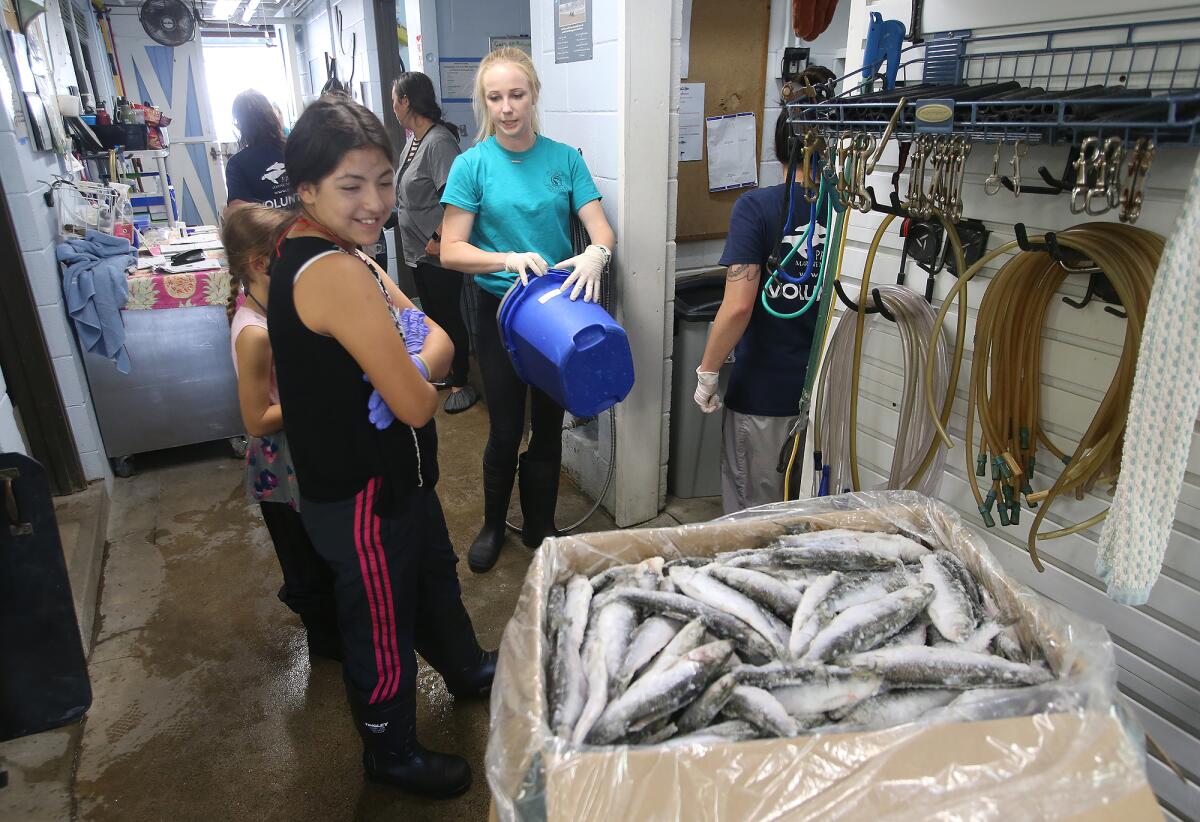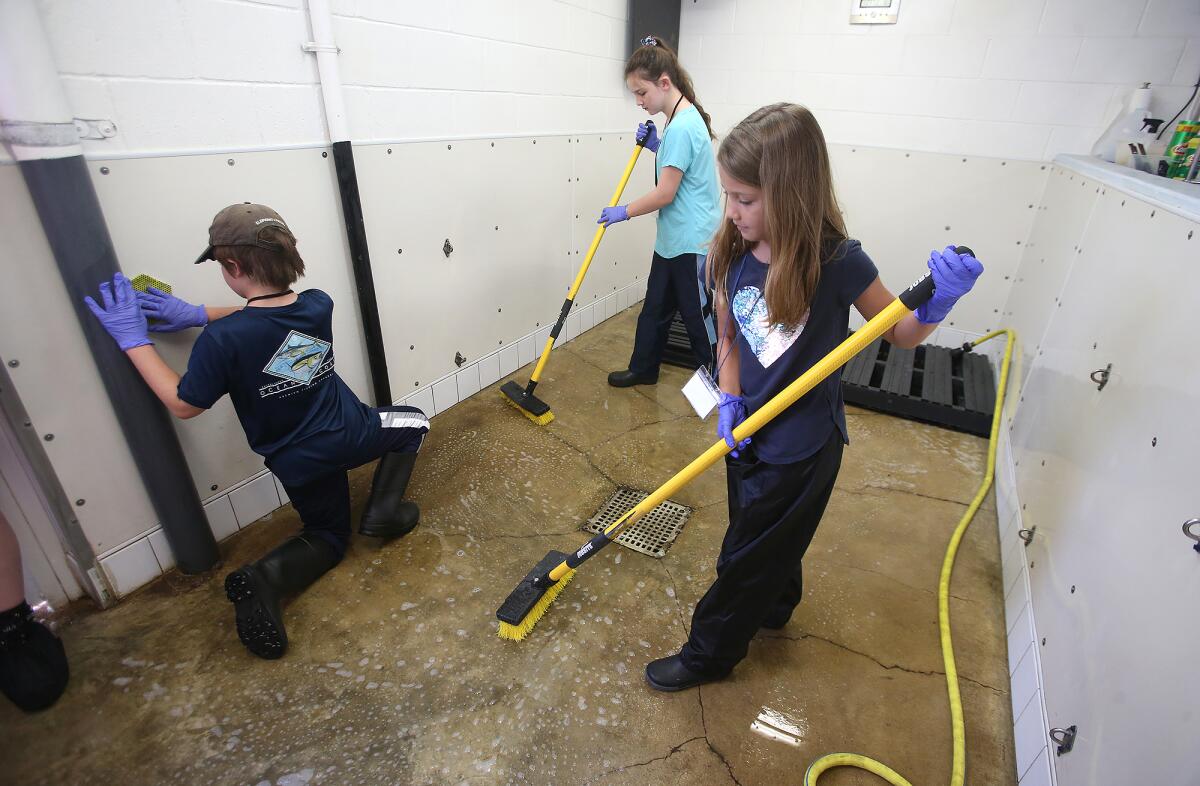Children learn to care for pinnipeds at Pacific Marine Mammal Center

- Share via
The tension is palpable as two marine life rescuers wait beneath a relentless July sun.
They hold large boards with which to corner a mass of brown and flippers that remains as still as they are.
Suddenly the animal jolts to life and speeds across the sea (of asphalt). The two leap into action. There’s yelling and cheering as they — perhaps, the smallest rescuers you’ll ever see — corner the sea beast, but just barely, as it still thrashes. Another rescuer sweeps in with a net and two more charge forward with a kennel and herd the pinniped inside.
It’s the rescue of a lifetime for these pint-sized heroes. Though the “captured” sea lion plushie strapped to the top of a remote controlled toy truck might disagree.

Performing a mock rescue is all in a day’s work at Camp Pinniped, a week-long summer program at the Pacific Marine Mammal Center, which educates children about caring for marine mammals and the ocean.
Practicing animal intake usually follows the “rescue,” but campers also weigh fish for patient feedings, make fish smoothies (more on that later) and clean pens, in addition to tie-dying shirts or dissecting sea urchins.
The Laguna Beach center sees new groups of 24 campers every session and small groups of six campers cycle through the animal care activities, Krysta Higuchi, a spokeswoman for the rescue center, said.
The program began in 1997, but Higuchi said the program updates annually in an effort to stay relevant and has expanded into topics of marine conservation and helping the environment.
Malena Berndt, senior summer camp counselor and a former camper, said the only thing that hasn’t changed is the animal-care activities because campers enjoy it so much.

Each animal care activity deals with a different stage of rehabilitation. Mock rescues and animal intakes deal with bringing the injured animals into the center. Fish smoothies made by the campers are for when animals are initially too weak to eat on their own.
And the cleaning — well, the cleaning is an inevitable part of animal care.
“Everyone’s like, ‘Ooh, I want to work in animal care. It’s so fun!’ Well, 95% of animal care is cleaning,” Higuchi joked.
New this year is a program called “Shark Tank,” named after the eponymous ABC show, where campers come up with an invention that can help with the environment and present their ideas to practice public speaking and teamwork.
Though the summer camp is named after pinnipeds, the scientific classification of animals that includes seals and walruses, campers also learn about whales, dolphins and other marine mammals.

The week ends with a trip to Crescent Bay, where campers will observe tide pools, participate in a beach clean-up and make sand sculptures.
“[Camp Pinniped is] such a great way to learn, especially for the kids. It’s a great way to teach them about our marine mammals and the environment we share with them,” Higuchi said. “It’s a great way to teach them [about] future career options — what it’s like to care for marine mammals, what it’s like to work in a rehabilitation facility, what it’s like to do different things, be a volunteer.”
All the latest on Orange County from Orange County.
Get our free TimesOC newsletter.
You may occasionally receive promotional content from the Daily Pilot.









